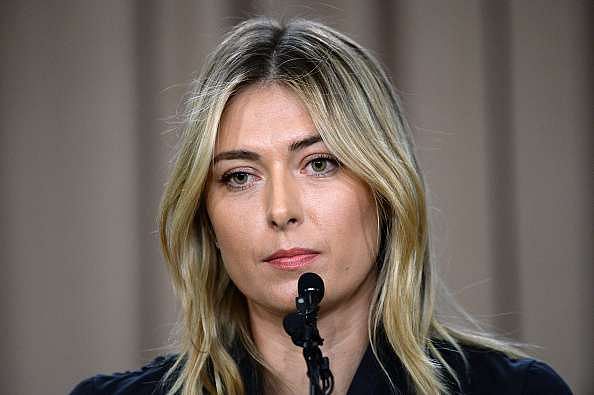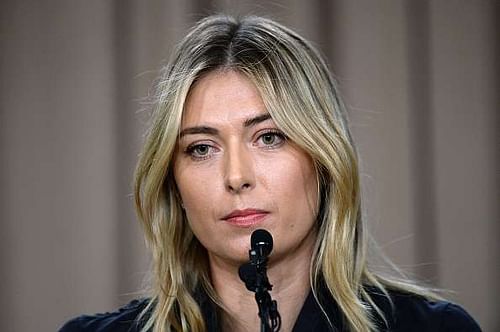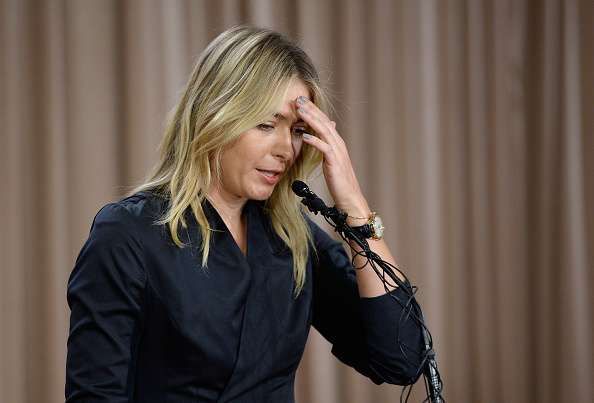
Why Maria Sharapova's explanation deserves forgiveness
When Maria Sharapova took to the lectern on an “ugly carpet” in a downtown Los Angeles hotel on Monday afternoon, few knew what to expect. Murmurs of retirement or an extended layoff were gently buzzing, while others suspected it may be an announcement relating to her premium candy brand, Sugarpova – although the dark and dingy venue soon dispelled those theories.
The reality was quite different. Instead of being an event solely implicating Sharapova, it was a moment that brought tennis back under an unwanted spotlight. Sport’s highest-paid female athlete and tennis’ undeniable poster girl outed herself as a drug cheat. All of a sudden, the gloomy setting was very apt.
The revelation that the Russian had failed a drugs test at this year’s Australian Open has sent shockwaves around the sporting world at a time when tennis least needs it – events off the court have already garnered much more press coverage this year than those on it.
But before Sharapova is handed a sporting death sentence, her defence must be heard. It looks an indefensible crime on the surface, but underneath, it can be explained as an innocent, albeit wholly irresponsible mistake.
Why would she wait until now to cheat?
Sharapova was caught taking Meldonium – also known as Mildronate – a drug that tackles poor blood flow. However, in a sporting context, it acts as a metabolic enhancer, which increases blood flow to boost endurance. In her statement, Sharapova claims to have taken the drug since 2006 to avert health issues, a situation that was perfectly fine until this year. On 1 January, meldonium was banned by the World Anti-Doping Agency (WADA) after its performance-enhancing effects were determined.
This leaves two scenarios. One, that Sharapova and her team knew this and tried to avoid getting caught, or two, that she simply didn’t have a clue that the drug had been added to the list of outlawed substances.
The first seems improbable. Why would Sharapova, a global icon who has scooped each Grand Slam at least once, deliberately cheat and tarnish her image in the latter phase of her career? Such a move is possible but unfeasible.
Our newfound wariness of being deceived by our sporting idols makes it harder for us to trust the second story than it otherwise would be. Athletics’ reputation has been mired thanks to cheats, while cycling’s image has been all but destroyed by Lance Armstrong, the American whose seven Tour de France titles were declared null and void following his admittance to long-term cheating in 2013, after a career of vehemently denying any wrongdoing, despite repeated accusations.
Sharapova had taken meldonium for 10 years. She should have checked and realised that it was now banned, but take away our penchant for scepticism, and it’s not difficult to believe she could have simply forgotten to. We can all imagine ourselves making similar blunders.
One thing must be remembered: until the 2016 Australian Open, Sharapova was not a drug cheat. While the effects of meldonium as a performance enhancer may have been clear, that the drug was legal is just as apparent. The fiercely competitive nature that consumes sport’s best makes it no surprise they will do whatever possible to eke an advantage.
Providing no rules are broken, it’s perfectly fair. A player is required to follow the rules their sports sets, not the moral guidelines we grapple to form whenever a major incident occurs. While meldonium has been a drug of choice for other Russian athletes who have been caught cheating, for a decade, Sharapova was simply pushing the boundaries. Call it unsporting and label it wrong, but until now, it wasn’t cheating.
Some may muse that this is Sharapova finally getting caught – that she is not as skilled in hiding meldonium as she is other drugs. It’s also convenient for such thinkers that this has happened at a time when her native Russia is embroiled in a serious athletics doping scandal, but it could just as easily be coincidental.
Cheating allegations can be levied on any other sportsperson who is thought to be clean. But we can only go on the evidence we have; sports vigilantism is a terrible thing, even more so when it’s done without facts. The mantra of innocent until proven guilty must be applied to sporting law, just as it is the actual law.
Sharapova’s misconduct is self-professed, but the extent of it is not. Unless further evidence comes to light, this is a case of clumsiness, not deceit.
Sharapova should be punished, but not banned for life
This piece has not intended to go out to bat for Sharapova. A sportswoman of her stature should have known better - as should her team – and an appropriate punishment should be issued.
She has brought the sport back into disrepute, and bust open the lid on the doping can of worms that has largely remained on in recent years. But while the press conference took place just a stone’s throw from Hollywood, there was little to suggest Sharapova’s speech was an act. It looked a genuine moment of remorse and regret.
Credit must also go to her for taking control - she hasn’t covered from the situation. Instead of making excuses, Sharapova has owned up: “I take responsibility for my professionalism in my job and I made a big mistake. I can’t blame anyone but myself. I have let my fans down,” she said.
Again, this was a rare case of a sportsperson owning up to their faults. There was nothing to indicate deception. This was coming clean in a way that managed to restore a pinch of respect.
Our tendency to position sports stars on a mantle often leads us to declare them infallible. But ultimately they are, like us, just people – and people commit errors. Sharapova has already been dropped by Nike and is likely to lose further sponsors.
Drawing the ire of large swathes of the tennis community is certain, and perhaps deserved. But she does not appear to be the sport’s equivalent to Armstrong, who knew exactly what he was doing. Coupling a suspension with the removal of her 2016 WTA points seems a satisfactory punishment.
Maria Sharapova screwed up. We all screw up. And for that, it would be cruel not to afford her a second chance somewhere down the line.

